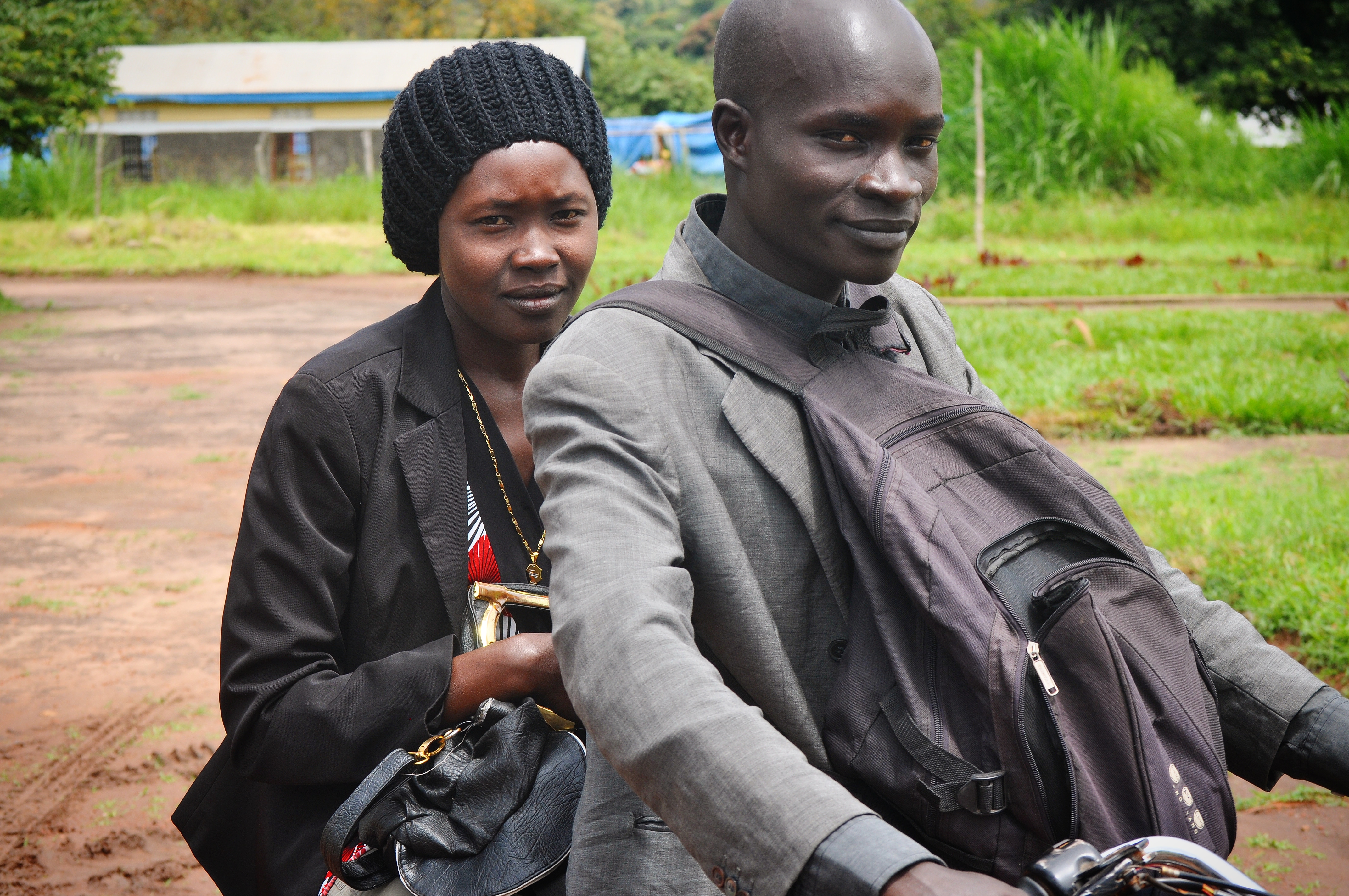
Morobo Broadcasting Services is overcome with grief over the death of their reporter, Nuka Agnes. She was 27 years old. She lived and reported in Rhino settlement of South Sudanese refugees. In 2016, she fled South Sudan during the height of the country’s brutal-war that has left millions displaced from their homes and nearly 400,000 dead. These numbers are still counting. Agnes’ intellect, brevity and sense of humor left a mark on her entire team and beyond. Her former journalism trainer, Pernille Bærendtsen, remembers vivid moments, in her obituary of Agnes.
On Wednesday 26 September news reached me from Northern Uganda that Nuka Agnes had died.
I got to know Agnes when I worked with Morobo Broadcasting Services in 2015 inside South Sudan. Morobo is a village not far from the border to Uganda, about an hour’s drive to Yei, the biggest town in the area. During 2015, Morobo and Yei were peaceful pockets though the civil war gradually also spread to this corner of South Sudan. Most of the people I worked with here later became refugees around July 2016 in Northern Uganda, in West Nile. Many now reside in the settlements of refugees such as Bidibidi and Rhino.
On receiving the sad news, on Wednesday, I recalled that among one of the first things I wrote in my notebook from the day at the radio station in Morobo, Agnes had stood out. I went back to find my old notes:
‘While planning a work session tomorrow, a challenge pops up: ‘Who’ll make the tea as the office assistant is in Juba?’ ‘The women in the team’, a man suggests.
‘One of the women then asks if she got that right, because would that then mean the women would miss out?’
New decision reached: We all make tea. And I buy the cassava or the Irish or the plantain for tea. Greetings from the world’s newest country.’
Agnes took me by surprise that day. She didn’t speak with a loud, commanding voice – something not entirely unusual for the typical big man in Morobo when requiring attention. Rather she would quietly question the logic, which many South Sudanese men and women would take for granted – a structure which couldn’t be changed. Who will make the tea? Come on, the answer is easy. The real question however is: ‘Why should anyone miss out?’
I have seen this over and over, that the less loud ones, the women and the youth, are the ones missing out on schools, education and trainings while they carry children, food, charcoal; make families functions.
Agnes wouldn’t want to miss out.
Agnes had the sweetest smile. But she also had the courage you need to quietly and calmly make wrongs right.
So, that day in Morobo we all made tea. I cannot speak for all the other 364 days of the year in South Sudan and Northern Uganda, but I count the kind of people who propose small, constructive changes such as Agnes and others.
My Experience about South Sudan https://globalvoices.org/2015/09/07/everyday-life-in-a-fragile-state-south-sudan/
I had the pleasure of meeting Agnes a couple of times again for trainings in Gulu and Arua in Uganda – and on Facebook.
Part of the training was to learn how to use a smartphone for reporting stories for radio. About the training https://www.dw.com/en/focus-on-relationships-between-refugees-and-local-community/a-41486648
Agnes, and the baby she carried, died this week in Rhino settlement due to complications related to giving birth. Speaking to people who knew Agnes and the circumstances, it is clear that had she had access to proper health care and had she received appropriate help to give birth safely the situation may had been very different. The settlements are home to over 1 million South Sudanese refugees.
May she rest in peace.
Pernille Bærendtsen is an independent journalist with various assignments related to media, journalism, culture and civil activism in East Africa and Denmark. Visit her website: https://www.duniaduara.dk/

